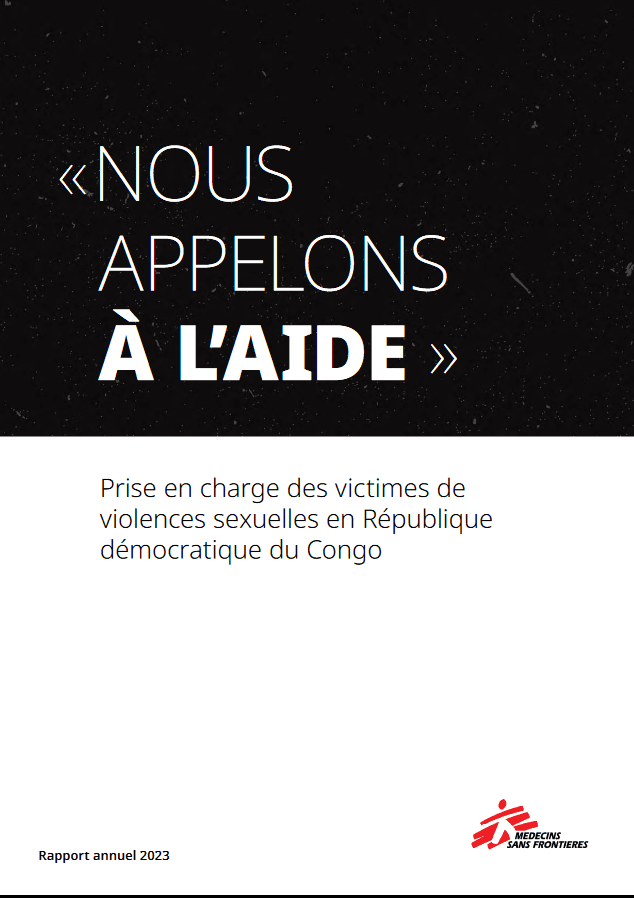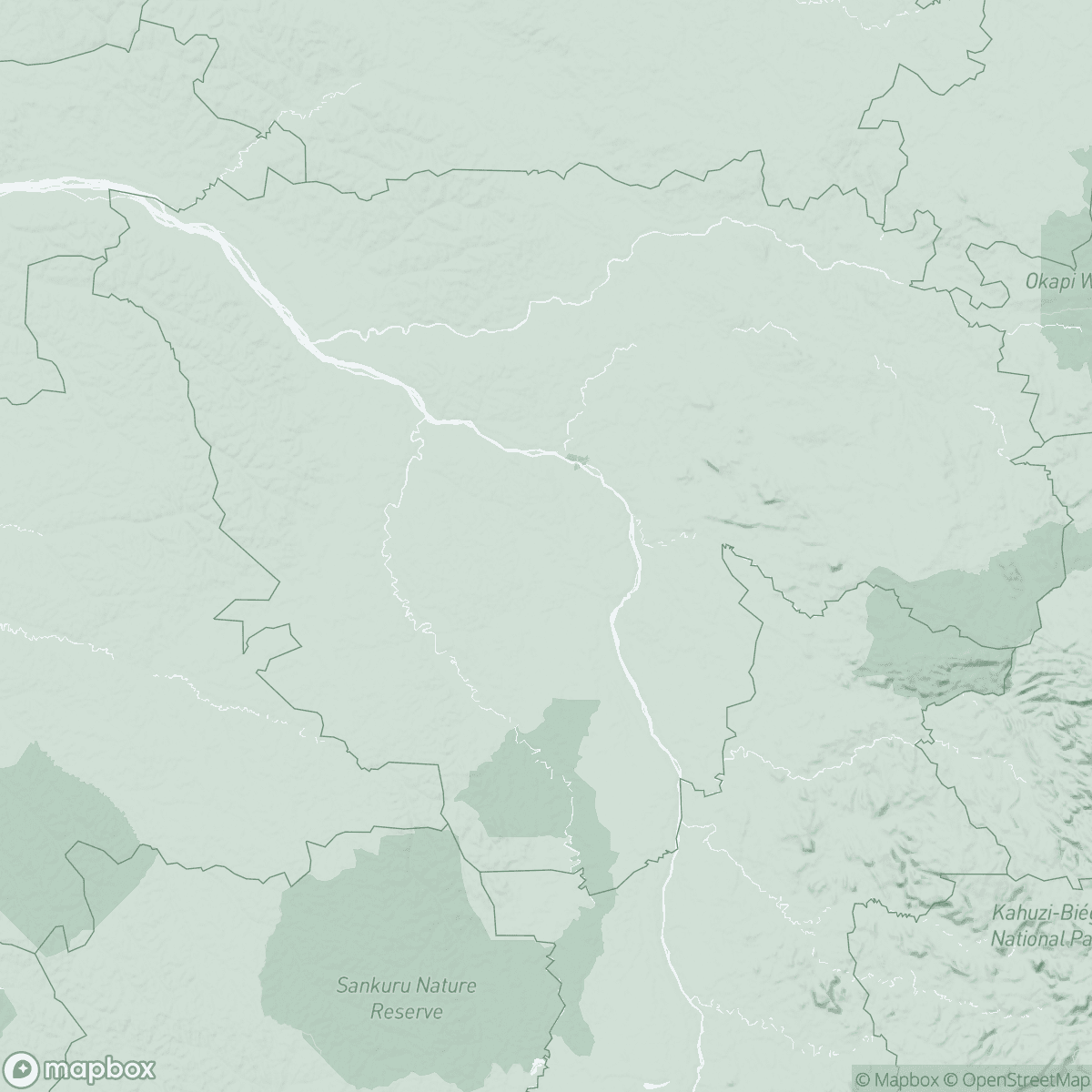
DRC: MSF publishes alarming figures on sexual violence admissions
In 1 click, help us spread this information :
In a retrospective report published on Monday, Médecins Sans Frontières (MSF) announced that – together with the Ministry of Health – it had treated an unprecedented number of victims and survivors of sexual violence in the Democratic Republic of Congo in 2023, and that this upward trend continued in the first months of 2024. The medical humanitarian organisation is calling on all national and international stakeholders to take urgent action to better prevent this phenomenon and improve care for survivors.
In 2023, MSF teams in the Democratic Republic of Congo (DRC) helped treat 25,166 victims and survivors of sexual violence across the country. That's more than 2 every hour.
This figure is by far the highest number ever recorded by MSF in DRC, based on data from 17 projects set up by MSF in support of the Ministry of Health in five Congolese provinces – North Kivu, South Kivu, Ituri, Maniema and Central Kasai. In previous years (2020, 2021, 2022), MSF teams treated an average of 10,000 victims per year in the country. The year 2023 therefore marks a massive increase in admissions.
This trend accelerated in the first months of 2024: in North Kivu province alone, 17,363 victims and survivors were treated with MSF assistance between January and May. Not even halfway through the year, this already represented 69% of the total number of victims treated in 2023 in the five provinces mentioned above.
“The publication of this report is essential to draw attention to this revolting and unimaginable violence. The report does not mention that many women and children are raped repeatedly, as we see when they return to our clinics.
But in addition to medical care, there is a great need for protection, socio-economic and legal support, which can only be achieved through partnerships with organisations that have this expertise and with the support of donors. In the meantime, more efforts must be made in terms of prevention activities and advocacy for punitive action. These are considerable challenges, hence the call for help!”
Wilma van den Boogaard, researcher on victims of violence at the Operational Research Unit in Luxembourg, known as LuxOR.
Displaced women are the first victims
Analysed and verified over several months, the 2023 care data presented in the report "We are calling for help" show that 91% of victims treated with MSF assistance in DRC were admitted in the province of North Kivu, where clashes between the M23 group, the Congolese army and their respective allies have been raging since late 2021, forcing hundreds of thousands of civilians to flee.
The vast majority of victims (17,829) were treated in the displacement sites around Goma, which continued to grow throughout 2023.

"According to the testimonies of our patients, two-thirds of them were attacked at gunpoint," said Christopher Mambula, head of MSF's programmes in DRC. "These attacks took place on the sites themselves, but also in the surrounding area when women and girls– who accounted for 98% of the victims treated by MSF in the DRC in 2023– went out to collect wood or water, or to work in the fields.”
While the massive presence of armed men in and around displacement sites explains this explosion of sexual violence, the inadequacy of the humanitarian response and the inhumane living conditions in these sites fuel the phenomenon. The lack of food, water and income-generating activities exacerbates the vulnerability of women and girls (1 in 10 victims treated by MSF in 2023 were minors), who are forced to go to neighbouring hills and fields where there are many armed men. The lack of sanitation and safe shelter for women and girls leaves them vulnerable to attack. Others are victims of sexual exploitation to support their families.
"On paper, there seem to be many programmes to prevent and respond to the needs of victims of sexual violence. But on the ground in displacement sites, our teams struggle every day to refer victims who need help," said Christopher Mambula. "The few programmes that do exist are always too short-lived and grossly under-resourced. Much more is needed to protect women and meet the urgent needs of victims."

Urgent calls for action
Based on the needs expressed by the victims, and building on previous work to solve this long-standing problem in the country, the MSF report lists some 20 urgent actions to be taken by the parties to the conflict, the Congolese authorities – national, provincial and local – as well as international donors and the humanitarian sector. For MSF, there are three main areas of urgent action.
- Firstly, MSF calls on all parties to the conflict to ensure respect for international humanitarian law. In particular, it calls for the absolute prohibition of acts of sexual violence, but also respect for the civilian nature of displacement sites. The protection of civilians caught up in the fighting must be a priority. The call to protect civilians from abuse is also addressed to those involved in humanitarian programmes.
- Second, MSF calls for the improvement of living conditions in sites for the internally displaced. Namely, access must be improved to basic needs – food, water, income-generating activities – as well as to safe and well-lit sanitation and shelter. These investments must also be accompanied by increased efforts to raise awareness of sexual violence. While humanitarian funding must be sufficiently flexible to respond to emerging and urgent needs, implementing partners must also demonstrate accountability in delivering interventions.
- Finally, MSF calls for specific investment in better medical, social, legal and psychological care for victims of sexual violence. This requires long-term funding to improve medical training, the supply of post-rape kits to care facilities, legal support, as well as the provision of shelters for survivors. Funding is also needed for awareness-raising activities to prevent stigmatisation or marginalisation of victims, which sometimes prevents them from seeking help. Given the high number of requests for abortion from victims, MSF is also calling for the adaptation of the national legal framework to guarantee access to comprehensive medical abortion care.
Sexual violence is a major medical and humanitarian emergency in the DRC. According to the latest Gender-Based Violence Area of Responsibility (GBV AoR) DRC information, which compiles data from various humanitarian organizations offering gender-based violence care services in 12 provinces of the DRC, 55,500 survivors of sexual violence received medical care in the second quarter of 2024.

